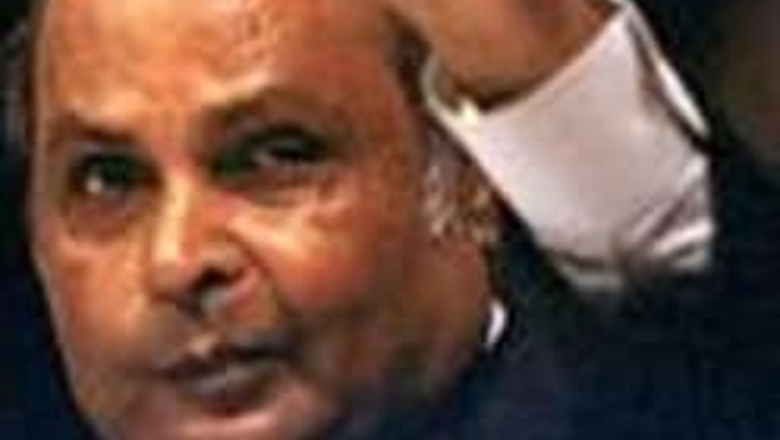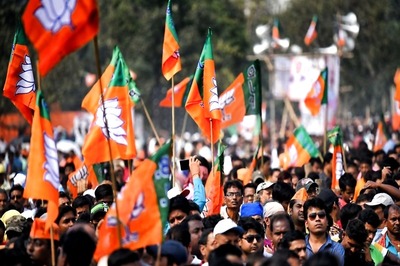
views
By B Subba Rao
I was having periodic meetings with Dhirubhai Ambani in the late 70s and 80s in my capacity as the features editor of the trade publications “International Textile Monitor” and “Textile India Progress.” From the very beginning, I found him to be quite different from the typical industrialists of that time, being utterly humble and without any airs.
I had no doubt that he would be a great achiever, but I confess I did not imagine that the business enterprise he was building would become the giant and Fortune 500 Company of today. In the earlier phase of his career, his meteoric rise with his unorthodox business methods aroused a lot of suspicion and envy and many regarded him as an upstart entrepreneur who would have a dramatic fall sooner rather than later and his response was to describe himself as “the bubble that did not burst.”
I remember him showing me his photograph seated next to Indira Gandhi at a function held very shortly after her return to power following the ignominious debacle of the Janata experiment, saying, “seeing is believing” accompanied with a policy declaration that “he would always be on the right side of whichever government is in power”.
About the typical mill owners and industrialists of that era, he would say that it was an inborn and incorrigible habit of theirs to complain about everything and something or the other. He admitted, though, that the governmental controls and regulations then in force were a serious hindrance to business growth, adding that the best and only out was to circumvent and even flout them and go ahead, this being the method he believed in and boldly followed.
He always asked me to write only about his company and its products but not about him. Nevertheless, my magazine carried a cover feature on “Only Reliance”, predicting a great future for his venture and hailing him as one heralding the new breed of dashing and self-reliant entrepreneurs that the country needed.
We used to have discussions on the problems of the textile industry and whenever we disagreed, he would come out with “you are barking up the wrong tree.” Another favourite remark of his, when he wished to emphasise that one should not expect too much help, was: “I can bring you a wife, but cannot produce a child for you.” He had a rollicking sense of humour and would roll back and forth chuckling in his chair as he did once when I could not suggest a solution to a problem under discussion and he did, exclaiming: “Rao bhai, you write so much about the textile industry, but even you could not think of it and Dhirubhai had to find a way out.”
I remember the occasion, when he had called me for an interview, but could not attend to me, as the deputy governor of the Reserve Bank had come unexpectedly for an urgent and lengthy meeting. In the course of an hour, Dhirubhai came out of the conference room three or four times to apologise to me, explaining that the august official had to be dealt with first, the matter being also quite important, although it was an unscheduled appointment – an instance of his courteous ways.
For a few years after he suffered a stroke, I was not meeting him till I attended an AGM of Reliance. I was moved by his disabled condition, but his address to the shareholders had the usual clarity and directness. After finishing his speech, he came to me, seated in a corner among a large group of journalists and asked me, “How was my speech, sir? I kept it simple so that everyone could follow.” I complimented him on his very good speech and the excellent performance of his company and wished it ever increasing success and recovery of health and long life for him. He chatted with me and the group of journalists with his characteristic informal bonhomie.
Thereafter, I did not have the opportunity of meeting him, and in the years that followed, his business expanded by leaps and bounds and his two sons taking it after his death to further glorious heights. I warmly cherish my memories of my association with his remarkable man, entirely self made and nothing short of a phenomenon whose extraordinary successes could be ascribed 50 per cent to his perspiration and perseverance in the determined and relentless pursuit of his “dreams with eyes open” and 50 per cent to sheer genius, a God given gift of uncanny powers, as he had no higher education, technical qualifications or business training background or inheritance except for having been born a Gujarati.
(Subba Rao is a veteran journalist.)




















Comments
0 comment